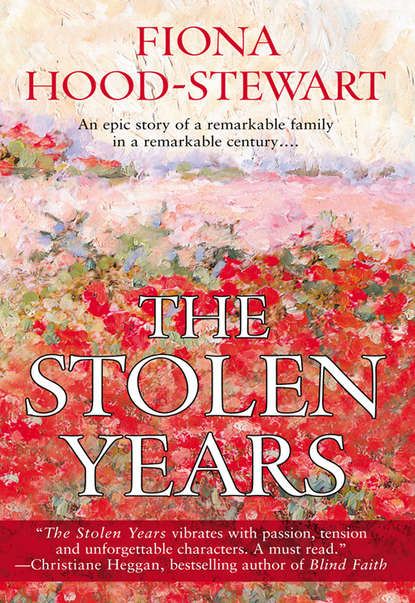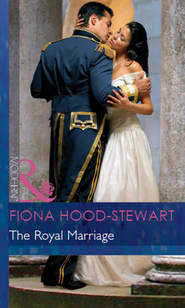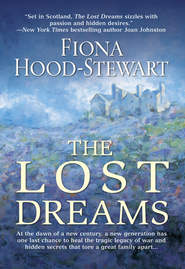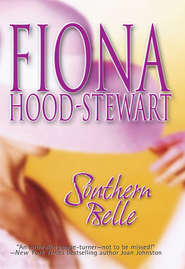По всем вопросам обращайтесь на: info@litportal.ru
(©) 2003-2024.
✖
The Stolen Years
Автор
Год написания книги
2018
Настройки чтения
Размер шрифта
Высота строк
Поля
“Sure are,” the man replied, eyeing him curiously.
“Can I get a lift from you? I’m trying to rejoin my regiment. I’m Captain Gavin MacLeod of the Fifty-first Highlanders. I was taken prisoner and escaped.” He straightened his shoulders.
“A lift?” The man raised an eyebrow and scrutinized Gavin’s peasant clothes and unshaven chin.
“He means a ride,” his fellow officer put in with a grin. “What’s your name?”
“Captain MacLeod of the Fifty-first Highlanders.” Gavin saluted smartly, hoping they’d believe him.
“Sounds good enough to me. Jump in the truck. Say, I don’t suppose you understand this gibberish?” He nodded toward a flustered French lieutenant.
“As a matter of fact, I do.”
“Lord be praised. Gimme a hand over here, will you?”
To everyone’s relief, Gavin began translating the conversation. The Americans were suitably impressed.
“Boy, you’re good. How did you learn Frog?” a gum-chewing soldier asked.
“My mother’s French.”
“Great. I’m Colonel Bill Donovan, First American Army, New York Sixty-ninth Regiment. We’re heading to St. Mihiel. That’s where the heat’s on right now. The Frogs need help.” He gave Gavin a speculative look. “We could use a guy like you around. I don’t suppose you’d consider joining our unit for a while before returning to your own?”
“I’d be delighted,” he replied without the slightest hesitation. They were headed in the right direction and that was all that mattered.
Jumping in the new American truck, they began the journey north. Soon Gavin was learning all that had occurred over the past months: the big German offensive, Ludendorff’s penetration of France and how Big Bertha—a gun with a range of seventy-five miles—was terrifying the shit out of Paris. In June the marines had denied the Germans access to the road to Rheims which, had it been captured, would have doubled their railway capacity. The Americans laughed and joked, telling him the already legendary story of what the marines had said when the Frogs wanted them to retreat: Retreat? Hell no, we just got here. Thanks to them, the Germans were having a hard time feeding their troops.
“Can’t fight on an empty belly,” Donovan remarked, reminding Gavin of his own hunger.
“They’re starving to death back in Germany,” he told them, recounting his exploits since he escaped from the hospital. He left out the part about Greta but mentioned the monks who had helped him get to Switzerland. “The German people and army are exhausted. Hindenburg and Ludendorff are no longer the national heroes they once were. All they want is a peace treaty. They can’t survive much longer.”
The First American Army was deployed just south of Verdun, facing the waterlogged territory of the St. Mihiel salient that had been held by the enemy since 1914. After a long ride, they reached the base and Gavin tasted his first hamburger—a mouthwatering experience. As he munched, Donovan called in a private.
“Get this man a uniform,” he instructed. “A captain’s uniform,” he added with a wink.
Gavin grinned, gripped by the dynamic American energy and the natural confidence the troops exuded, so different from the fatigued British and French armies that were stretched to the limit of endurance. He felt energized and alive, and after more French fries, ready to fight.
Later, donning the uniform they had found him, he glanced at the name on the jacket. Captain Dexter Ward, New York Sixty-ninth. He experienced a moment of hesitation, then put it on. For an instant he wondered how Ward had died, and felt strange about stepping into a dead man’s shoes. He fingered the dog tags forgotten in the pocket, wondering if he should hand them over. Then he cocked an eye at himself in the small shaving mirror, holding it back far enough to get a good look. He wondered if he should add an American twang to complete the image. It wouldn’t be too hard, accustomed as he was to chopping and changing languages with ease. All at once he slipped the dog tags on his wrist, then saluted smartly. If he was going to borrow Captain Ward’s identity, he’d better do it right.
The overwhelming need to return to his unit had diminished against the enthusiasm and excitement surrounding him; the thought of rejoining the worn-out British army and perhaps having to face the problem of Flora was simply less enticing than where he was. He felt a sudden pang of guilt as he took a last look in the mirror. Then, with a shrug, he turned on his heel. He’d get back eventually and solve his problems. Just later, rather than sooner.
The first all-American offensive began mid-September. In the first day of fighting, from behind a barrage of guns, they caught the Germans by complete surprise, capturing over thirteen thousand prisoners and four hundred guns.
Gavin was posted as liaison. His months in Germany had allowed him to pick up some of the language and, in addition to his knowledge of French, he quickly became an essential part of Donovan’s team. Translating and resolving misunderstandings, he was fascinated by how different the two cultures were and the essential diplomacy involved. He did not feel it necessary, however, to inform his American counterparts that, although the French acknowledged their moral superbe, they pettily attributed their success to German weakness rather than American efficiency.
When they learned of the Wilson peace proposals, which demanded unconditional surrender, the atmosphere became one of anticipation. Gavin loved the American spirit and was instantly at home with their frank, easygoing style, their courage and matter-of-fact manner. Each time an opportunity arose for him to return to his own sector, an excuse came up and he left it for the next time, certain there would always be another opportunity.
October brought the news they had longed to hear for so many years; the Germans had called for an armistice and desired a peace settlement. On November 11, the guns were finally silenced.
By the time Gavin’s troop reached Rheims, he and the other men were simply living in the present, and joined the frenzied reveling of the battered city, exulting in a riotous explosion of overjoyed relief. Girls flung themselves around the Americans’ necks, champagne corks flew and golden froth gushed over the pavements, bathing them in the sparkling wine. Rheims had opened her cellars and her heart, and the air was alive with joy and excitement. Bottles were shoved into their hands as the liberators drove, victorious, through the streets of the tattered city.
Soon it became impossible to drive and Gavin found himself on the sidewalk, a bottle in one hand and a pretty brunette clinging to him, her mouth avidly seeking his. He had no problem obliging. But when he raised his head and searched the milling crowd, he realized the others had been swept into the throng. The girl was dragging his hand relentlessly, thrilled he spoke French. He took a last look at the swarm then shrugged, realizing it would be like looking for a needle in a haystack. He’d meet up with Donovan and the others later, when the excitement died down. Right now the feel of the girl’s body and her pliable lips were tantamount to delirium.
Throwing an arm protectively over her shoulders, he followed her into a side street, where she stopped just long enough to kiss him and press her body closer before pulling him into the shattered remains of a rooming house. His mind went blank as her body melded to his, tasting champagne and the intoxication of victory, the need to plunder all that mattered now.
As he took another swig from the bottle and followed her up the creaking stairway to the second floor, he could already picture her moving below him, barely seeing the shabby room with the paint peeling off the splintered walls as he began pulling off his jacket. Vague thoughts of Greta and Flora gave him a moment’s guilt that dwindled rapidly as the girl shooed a large tabby cat from the bed and twirled invitingly, her eyes twinkling mischievously under a mop of chestnut curls.
She unbuttoned her blouse, the material sliding off her slowly, until at last it fell to the floor. Greta and Flora were forgotten as he watched her nipples harden. He reached for her, hungry for the touch of her skin, the feel of something soft and female, the softness of her body a panacea to the death and destruction of the past months. Her hand reached for him and he pulled her toward the bed as she undressed him eagerly, her fingers running provocatively down his chest, forgetting everything but the overwhelming desire to claim the victor’s prize, to plunge deep within her and obliterate reality.
It was dark when he awoke, but the sound of celebrating continued in the streets below. He glanced at the naked girl breathing softly at his side and realized he didn’t know her name. Nor did he want to. He got up quickly and dressed, anxious to get away, to find the others and get on with his plan to send a cablegram home to his parents. It would have to wait until tomorrow, he realized, pulling on his shirt and glancing through the shattered window at the street below, where a young couple stood kissing in the glow of a remaining street lamp.
He turned and looked at the girl, still fast asleep, wondering if he should leave her money. She might be insulted. On the other hand, perhaps it was expected. In the end, he found an empty jam jar and stuffed some bills and a note inside, that read Thanks for a wonderful night. Please buy something to remember it by. Running down the rickety stairs, he avoided the weary gray-haired concierge who mumbled crossly as she swept the remnants of the previous night from the dingy hall.
As soon as he stepped into the street, he realized the city was still celebrating, drunk with relief. He stared at the crowds and wondered how he was going to find the others. He made his way down the Rue Gambetta, through the bombed buildings and debris, and headed for the Boulingrin, a restaurant he had heard Colonel Donovan say had the best French fries in town.
Arriving at the bistro, he peered through a throng of Allied uniforms and girls in their Sunday best, hanging at their heros’ necks. Determinedly, he made his way slowly but persistently to the counter, where he managed to squeeze into an empty spot. He was immediately handed a glass of champagne. He smiled his thanks to the bartender and turned, hoping to begin a conversation with the two British officers standing next to him.
But before he could speak, someone grabbed his arm. Once she had his attention, a pretty redhead with a provocative smile and ruby lips reached up and kissed him full on the mouth.
“Oy, you’re with me,” an outraged cockney voice exclaimed.
“Non!” the young woman exclaimed with a provocative pout. “Moi, I like Américains.” As she gazed up at Gavin and slipped her arms around his neck, the man’s face reddened angrily.
“Oh ye do, do ye? Let’s see how ye like this.” Gavin tried to disengage himself from the girl’s grasp, but the more he tried the more tightly she clung. As the full force of the man’s fist crashed into the right side of his face, Gavin reeled back, flying against the counter with the girl squealing on top of him. He picked himself up painfully, his right eye closing fast. Through the other he saw four marines rising, balling their fists, while two British Tommy’s prepared to back their mate. Then all hell broke loose.
One marine swung at the officer beside him, and after that it was mayhem. Chairs flew, bottles crashed, girls screamed and waiters yelled. The last thing he saw before being knocked out cold was the barman, swearing rapidly and smashing an empty champagne bottle over the head of a drunk marine.
9
Isle of Skye, Scotland, 1918
It seemed strange to be married in November, Flora reflected, looking out across the sea from her perch on the window seat where she sat curled up among the old chintz cushions. Tomorrow she and Angus would be married. It was the right thing. The only thing she could do for him, now that Gavin and Uncle Hamish were gone, for he’d never manage on his own, and Gavin would have expected it of her.
Still, it seemed unreal. But then, everything seemed unreal, even Gavin’s death. She was still not able to register that he would never again walk into a room, his eyes glinting in that unique way, inviting her on some impossible adventure. She turned and stared at the door as though he might suddenly materialize. She didn’t feel his death—she never had. Of course, hoping he might be alive was wishful thinking. She knew that. But still…Even the memorial service and the engraving on the family tombstone, next to Uncle Hamish’s name, hadn’t made it sink in.
And tomorrow she was to become Angus’s wife. She tried to suppress her sadness. Being his companion, helping him with the estate and doing her duty by him were one thing. But the other…She clasped her arms tight, pulling her heather-colored cardigan tight as a shudder went through her. How was she going to react when he…She closed her eyes and tried desperately not to think about tomorrow night or the grief of being anyone but Gavin’s.
She sighed and turned again toward the churning gray waters that smashed against the rocks below. The lump in her throat, which surfaced so often of late, returned. The last thing she wanted was to hurt Angus’s feelings. On returning from France, after learning of Uncle Hamish’s sudden death, she had agreed to be married as soon as possible, and she was determined not to spoil it for him.
It was dark and misty outside. In the distance, a small fishing vessel bobbed on the horizon, heading into port. Flora listened to the rush of the wind and the gulls squawking overhead. She heard Millie barking in the distance as she gazed across the leaden November waters, feeling as if part of her had remained in the Somme with Gavin, leaving her distant, as though in another world.
It was hard to show enthusiasm for the lovely trousseau that Tante Constance had lovingly chosen, all the while lamenting that it could not be bought in Paris. She hated standing for hours while dressmakers pinned her wedding dress and fussed. Angus had presented her with a beautiful ring that had belonged to his great-grandmother and which Tante had suggested for their engagement. When he had slipped it onto her finger, she had shuddered, forcing back the tears in an attempt to show a happy front. She was determined not to think of what might have been, but that was proving impossible. Each folded sheet, each delicately embroidered pillowcase where the wrong initials entwined were an agonizing reminder of the nights she would never spend in Gavin’s arms.
She watched the boat disappear from view with a sigh. Tante would have a list of last-minute things to go over before the formal dinner tonight. Oncle Eustace, Tante Hortense, Cousin Eugène, René and little Geneviève, who was to be a bridesmaid, had arrived earlier in the day and were resting in their apartments on the second floor.
The wedding was to be a small affair, for which she was thankful. She couldn’t have handled a huge ceremony, the pomp of a cathedral. The tiny chapel erected at Strathaird four centuries ago was beautiful, and would make the event bearable, even though the place was permeated with memories of Gavin. She smiled and a tear rolled down her cheek as she remembered eating apples with him under the altar, his foot nudging hers as he tried to make her giggle during Mass.
She wiped her face and wandered reluctantly down the wide oak staircase, wondering if she was right to be marrying one man while mourning another. Should she call the whole thing off while there was still time, she wondered, stopping on the landing and gazing up at a portrait of Struan MacLeod, Gavin’s great-grandfather. Those same twinkling eyes met hers and she swayed in sudden panic, as though he were there before her.











